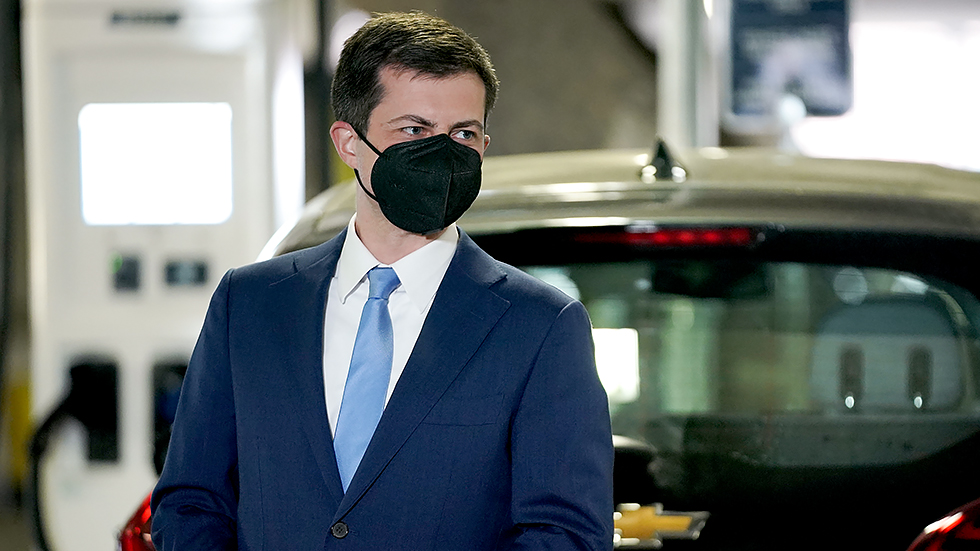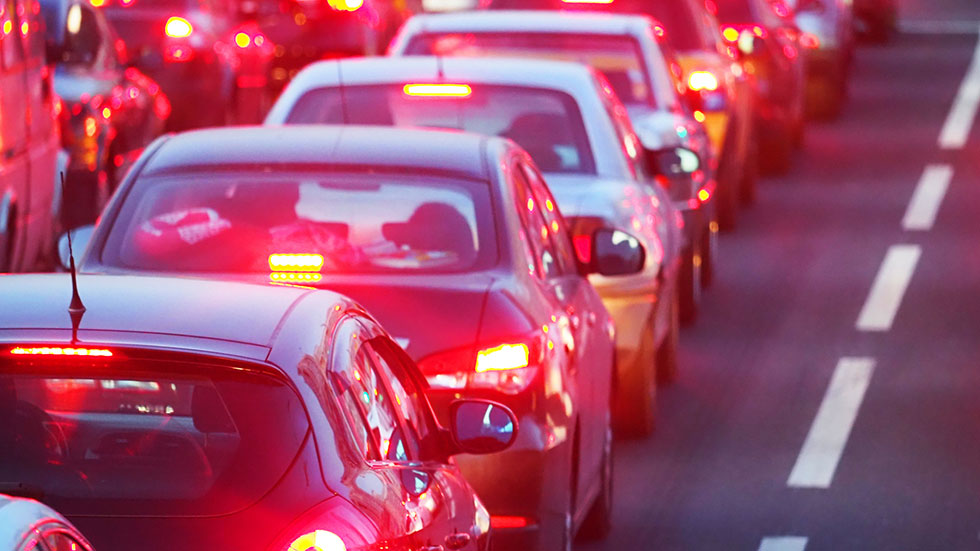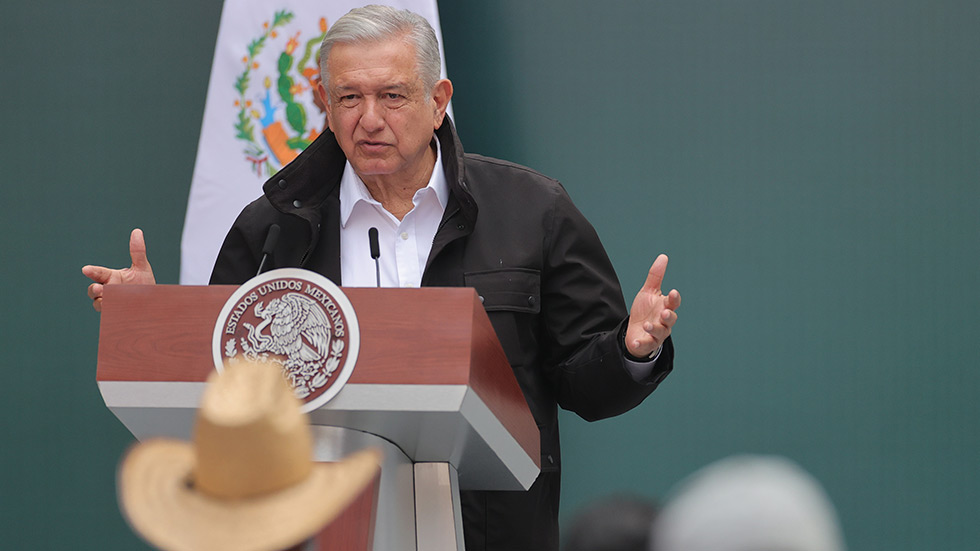Equilibrium/Sustainability — Presented by Altria — SpaceX crew takes off, but moon must wait
Today is Wednesday. Welcome to Equilibrium, a newsletter that tracks the growing global battle over the future of sustainability. Subscribe here: digital-stage.thehill.com/newsletter-signup.
The SpaceX Crew-3 Mission is set to take off this evening to the International Space Station — marking the third time the SpaceX Crew Dragon will transport a crew rotation of astronauts to the station, as part of NASA’s Commercial Crew Program.
But while SpaceX may be shuttling astronauts to the International Space Station, it will not be transporting them to the moon as soon as expected. The goal of a 2024 lunar landing, first set by the Trump administration, will no longer be technically feasible in part due to a lawsuit filed by Jeff Bezos’s company, Blue Origin, challenging NASA’s decision to award a lunar lander contract to Elon Musk’s SpaceX, The Wall Street Journal reported.
“Returning to the Moon as quickly and safely as possible is an agency priority,” NASA administrator Bill Nelson said in a statement. “However, with the recent lawsuit and other factors, the first human landing under Artemis is likely no earlier than 2025.”
Today we’ll take a look at Earthly aviation — and how countries are working to make air travel more sustainable. Then we’ll look at a sweeping commitment by 30 countries to electrify their new car fleets by 2040 — and why the United States is sitting it out.
For Equilibrium, we are Saul Elbein and Sharon Udasin. Please send tips or comments to Saul at selbein@digital-stage.thehill.com or Sharon at sudasin@digital-stage.thehill.com. Follow us on Twitter: @saul_elbein and @sharonudasin.
Let’s get to it.
Emissions will rise without low-carbon aircraft

If world leaders do not take “dramatic, urgent action” to support the deployment of low-carbon aircraft, the global aviation sector will experience a “substantial additional growth in emissions over the next 30 years,” Transportation Secretary Pete Buttigieg warned on Wednesday, as The Hill reported.
“Timelines are not being dictated by conferences or by congresses — they’re being set by the laws of physics,” Buttigieg said. “In the U.S., we are making up for lost time, accelerating our action and our commitments.”
Prioritizing climate ambitions: Buttigieg was speaking alongside the launch of the International Aviation Climate Ambition Coalition, at the United Nations Climate Change Conference (COP26).
“Aviation is so central to the fabric of our global economy and our global community,” Buttigieg said. “And of course, it’s how so many of us got here this week.”
Net-zero by 2050: With the aim of keeping global warming below 1.5 degrees Celsius (2.7 degrees Fahrenheit), coalition signatories have set a “long-term aspirational goal” to achieve net-zero emissions by 2050, under the leadership of the International Civil Aviation Organization.
The parties also agreed to work toward scaling up and deploying the still-rare and expensive sustainable aviation fuels, as well as establishing a formal Carbon Offsetting and Reduction Scheme for International Aviation. Sustainable aviation fuels are substitutes for traditional jet fuel, made from feedstocks like renewable biomass and organic waste resources, according to the Department of Energy.
What’s the U.S. doing to achieve these goals? Buttigieg touted the Federal Aviation Administration’s Aviation Climate Action Plan, which he launched at COP26 on Tuesday. The plan sets a goal of net zero emissions for U.S. aviation by 2050 — by increasing the production of sustainable fuels and aircraft technologies, while boosting operations efficiencies and slashing airport emissions.
The U.S. also recently announced an investment of $200 million, which includes matching private funds, to advance aviation technologies, Buttigieg added.
“Just like vehicles on the ground, the future of aviation is a sustainable one,” he said.
What about the private sector? Also at COP26 on Wednesday — Transportation Day at the summit — the Sustainable Aviation Buyers Alliance announced a collaboration with Amazon Air, Alaska Airlines, JetBlue and United Airlines to support relevant investments.
A joint initiative between the Environmental Defense Fund and the Rocky Mountain Institute, the Alliance aims to drive sustainable fuel production, price reduction and innovation, a news release from the group said.
Statements from Amazon Air and Alaska Airlines executives indicated their intent to decarbonize aviation with sustainable fuels and reach net zero by 2040.
Global competition is key: Buttigieg emphasized how sustainable aviation could bring economic benefits and new jobs at home in the U.S., but also advocated for “global competition.”
“U.S. innovators will thrive more under that kind of healthy pressure,” Buttigieg added.
A MESSAGE FROM ALTRIA

Altria is working to create a more sustainable future — aligned with the expectations of society and our stakeholders. Learn about the goals we’ve set and the progress we’re making at Altria.com.
‘ONLY GLOBAL COOPERATION CAN PUT AVIATION ON A TRULY SUSTAINABLE PATH’
And in other countries? Neither the rise of the internet communications nor the pandemic have slowed the need for air travel, which remains one of the “fastest growing sources of greenhouse gas emissions,” according to U.K. Transportation Minister Trudy Harrison.
“Only global cooperation can put aviation on a truly sustainable path so that we don’t simply displace emissions elsewhere, or damage our connectivity,” Harrison said.
Africa’s aviation hub: Nancy Karigithu, principal secretary for Kenya’s State Department for Shipping and Maritime Affairs, said that sustainable aviation is critical to her country, which is “one of Africa’s leading aviation hubs.”
Kenya, she said, has established a system to collect relevant environmental data from the aviation sector, while piloting a project that uses a solar photovoltaic system to power gate equipment and provide a pre-conditioned air supply.
Clean Skies for Tomorrow: Kenya also supports a low-carbon development pathway proposed by the World Economic Forum’s Clean Skies for Tomorrow Coalition, Karigithu said. This initiative, which includes nonprofit and business partners, champions the development of commercial scale fuels from biological and synthetic sources, for broad adoption by 2030.
Last words: Sustainable technologies will help “reduce our reliance on fossil and non-sustainable biomass fuels for a net zero aviation sector for society and the planet,” Karigithu added.
30 countries to quit gas-powered cars by 2040

Thirty national governments, six leading automakers and many U.S. states and cities committed to eliminate fossil-fuel driven automobiles entirely by 2040, and in “leading markets” by 2035, according to the U.K government.
Signatories included the governments of India, the U.K. and Canada; carmakers Ford, General Motors and Volvo; and the states of Washington and California. The U.S. federal government, however, was noticeably absent from the agreement.
An electric future: A commitment from such “major players” shows that companies “accept that “the future is electric,” former U.S. air quality official Margo Oge told The New York Times.
In a related development, global carmakers are planning to spend $515 billion to develop and build battery-powered cars — a move largely driven by “looming zero-carbon mandates,” Reuters reported.
Other major players abstained: In addition to the U.S., Japan and China — three of the world’s largest car markets — along with major automakers Toyota and Volkswagen, didn’t sign the pledge, according to The Hill.
Why did the U.S. abstain? Officials have been cagey. The Biden administration is “focused on what we are doing at home,” said U.S. transportation secretary Pete Buttigeg, according to The New York Times, referring to Biden’s August executive order that aimed for 50 percent of new vehicle production to be electric by 2030.
But the administration’s reluctance — like that of Shinzo Abe in Japan and Xi Jinping in China — reflects some key difficulties in the transition off the internal combustion engine.
WHAT IT TAKES TO GO ELECTRIC
First, there’s the infrastructure: Every electric car sold in the U.S. implies a parallel system of plentiful and reliable charging stations to keep them running.
That system got a big boost on Friday, as the passage of the bipartisan infrastructure bill contained $5 billion in direct funding for highway electric charging stations — more money than has been spent collectively over the past several years, according to The Wall Street Journal.
That’s less than a third of what Biden originally wanted for charging stations alone, and isn’t enough for widespread adoption of electric vehicles, The Associated Press reported.
Why not? To get to 36 percent electric cars by 2030, the U.S. would need to increase its number of chargers tenfold, to 2.4 million, according to the International Council on Clean Transportation.
And building enough charging stations to meet U.S. electric vehicle growth will cost $50 billion by 2030, according to consulting group AlixPartners, CNBC reported.
And that number may be too low by a factor of more than two, according to the American Public Power Association.
Charging stations are just half the battle: They need a grid to charge them, which raises its own complications depending on what fuels that grid, Reuters reported.
In coal-hungry Poland and Kosovo, electric vehicles release more emissions than gasoline-powered cars — while in nuclear and hydropower-fueled Switzerland and France, EVs save close to 100 percent the carbon of gas cars, Reuters reported.
A political danger: But even in France — which also declined to sign the electric vehicle deal — moves toward electrifying the car fleet bring memories of political upheaval: the 2018 Yellow Vest riots against President Emanuel Macron’s government, sparked by a climate-focused gas tax, according to the Times.
In the country’s diesel-dependent rural areas, extreme inequality “prevents us making an ecological transition,” Yellow Vest leader Sophie Tisser told the Times.
Stuck in the middle: The Biden administration is in a similarly difficult position: rising gas prices are plaguing an economy still dependent on the internal combustion engine — threatening to drive the Democrats from power before they can meaningfully effect the transition to electric, the Journal reported.
Last words: “Everyone knows that the idea that we’re going to be able to move to renewable energy overnight…” Biden said at a meeting of world leaders last month. “It’s just not rational.” Biden said.
A MESSAGE FROM ALTRIA

Altria is working to create a more sustainable future — aligned with the expectations of society and our stakeholders. Learn about the goals we’ve set and the progress we’re making at Altria.com.
World Wednesday

The Mexican president wants the wealthy to give direct cash transfers to the poor; Pacific islands struggle to stay above water; and mining companies can’t reduce supply-chain emissions without their customers.
To address global poverty, transfer money to poor: Mexico’s president
- Mexican president Andrés Manuel López Obrador (AMLO) lambasted global leaders for failing to address corruption among the world’s wealthiest individuals, who he said are driving the world from “civilization to barbarity,” according to the Associated Press.
- AMLO’s solution: direct cash transfers to the 750 million poorest people in the world drawn from the 1,000 wealthiest people, 1,000 largest private corporations and the Group of 20 largest economies (G20), the AP reported.
- Through a voluntary donation of 4 percent income from individuals and corporations, and 0.2 percent of G20 GDPs, the U.N. could create a $1 trillion fund to address serious poverty and inequality, AMLO said.
- “Nothing really substantial has been done to benefit the poor in the history of [the U.N],” he added. “But it is never too late to ensure that justice is done.”
As his country sinks, Tuvalu foreign minister addresses COP26 partially underwater
- Simon Kofe, the foreign minister of the tiny Pacific island nation of Tuvalu, delivered a video address at the COP26 summit on Tuesday wearing a suit and tie and standing at a lectern, but knee-deep in seawater, The Washington Post reported.
- “In Tuvalu, we are living the reality of climate change and sea-level rise, as you stand watching me today at COP26,” Kofe said. “We cannot wait for speeches, when the sea is rising around us all the time. Climate mobility must come to the forefront.”
- Tuvalu, with a population of just 12,000, sits in the Pacific Ocean between Hawaii and Australia. The country is only 6 feet 6 inches above mean sea level, but the water is rising at a rate of almost 0.2 inches per year, according to the Post.
Mining companies can’t go zero-carbon without their customers
- Metal mining companies around the world are facing pressure to cut their Scope 3 emissions: those caused by others in the supply chain, like their customers, The Wall Street Journal reported.
- Since the carbon cost of steelmaking can account for 70 percent of Scope 3 emissions for leading global mining companies, reducing miners’ impact requires pressuring their own customers to cut emissions — or lose out on sales from climate-conscious downstream customers, according to the Journal.
- Some companies are experimenting with methods to purify the iron ore they sell, so it costs steelmakers less carbon to turn into steel, the Journal reported.
- But the steel sector, which accounts for 7 percent of global emissions, is still in the “early-stage of decarbonization,” Mike Henry, CEO of mining group BHP, told the Journal.
Please visit The Hill’s sustainability section online for the web version of this newsletter and more stories. We’ll see you on Thursday.
{mosads}
Copyright 2023 Nexstar Media Inc. All rights reserved. This material may not be published, broadcast, rewritten, or redistributed. Regular the hill posts
Video/Hill.TV










